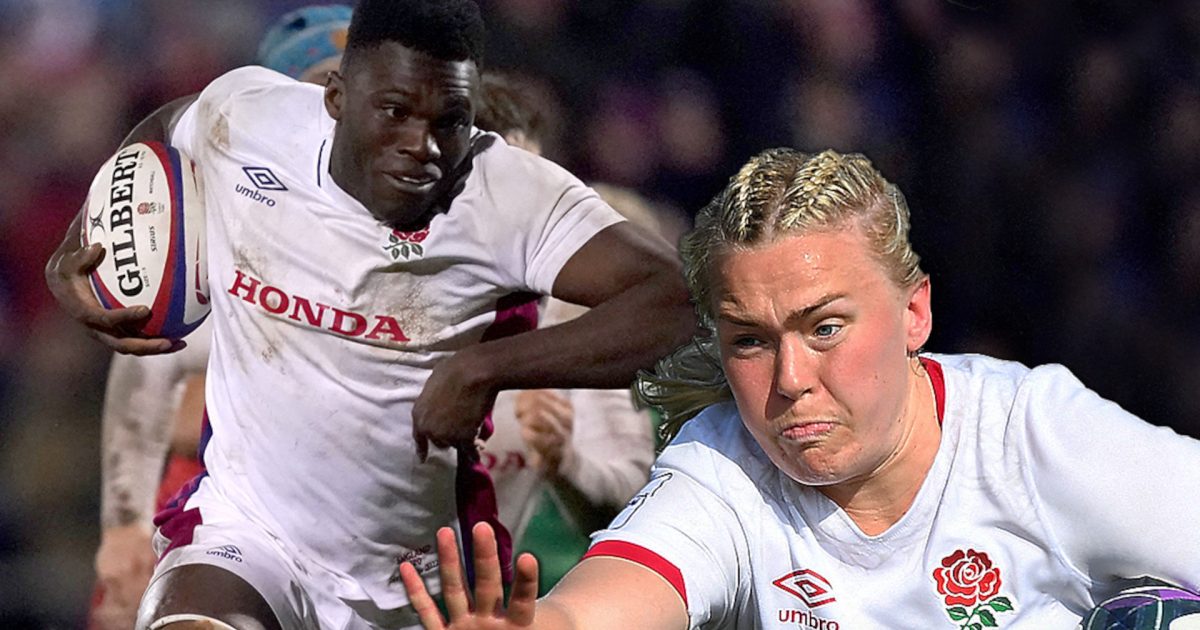Brian Moore proposes England Women face age-grade male sides

Brian Moore has set social media alight by suggesting that the England Women’s team might consider playing age-grade men’s team in a ‘structured’ setting as preparation ahead of the Women’s Rugby World Cup.
England hammered Scotland 57 – 5 in their opening game of the TikTok Women’s Six Nations, suggesting the perennial problem of a gulf in class between England and their opponents is yet to be bridged.
Moore is commenting at this year’s tournament after relinquishing the same role for the BBC’s broadcast of the men’s game.
As it stands, the majority of the Red Roses side are contracted under professional contracts, and there is a considerable divide between them and all but France in the current Women’s Six Nations competition.
Ireland, Scotland and Italy players – with a few exceptions – are either amateur or semi-professional, while Wales are a mixture of professional and amateur. France has been England’s closest rivals of late for the title, but it hasn’t stopped the Red Roses from winning 12 of the last 20 titles, including the last four tournaments.
To bridge the gap ahead of facing New Zealand’s Black Ferns at the Rugby World Cup, Moore suggests that Red Roses could play against England age-grade men’s teams, even potentially the U20s, provided it was ‘structured’.
“If the England women’s team cannot find the sort of physical and technical challenge that they need in ordinary fixtures against conventional opponents, they should look to see if it is possible to have structured training sessions and games against the England Under-18 or Under-20 male teams,” he wrote.
“Purists might baulk at this sort of crossover and in an ideal world, where every Tier 1 union valued and invested in women’s rugby, this would not be necessary. Until then, they might have to be creative.”
“There is no reason, other than lack of will, for the Scottish, Irish and Italian Unions to fund a form of professional women’s game. It does not have to be the equal of that in England or New Zealand, but they can and must invest in this area.”
It’s an interesting concept, not least given the size difference between the England women’s team and their male age grade colleagues.
England’s Women’s heaviest player is Bryony Cleall, who stands 183cm tall and weighs in at 108kg. Cleall is an outlier, however, with most of England’s current forward pack weighing in between 85kg and 97kg.
The England U20s on the other hand are effectively the same size and weight as a normal professional side – and in some cases even bigger. Many of the current England U20s forward pack top the scales at over 120kgs, while most of the backs are taller and heavier than the Red Roses’ forward pack.
Leaving size aside, the differences in athletic performance and body composition could call into question the safety of such an exercise – even in a structured setting as Moore suggests.
The former England hooker responded to criticism of the idea, saying he understood the ‘danger’. “I’m well aware of danger hence suggesting only structured training or games and then only if other unions refuse to fund their women’s pro game properly,” replied Moore to one skeptic.
Accepted – I'm well aware of danger hence suggesting only structured training or games and then only if other unions refuse to fund their women's pro game properly.
— Brian Moore (@brianmoore666) March 28, 2022
At present many unions do not allow male and female players to play contact rugby against each other, in any context.































